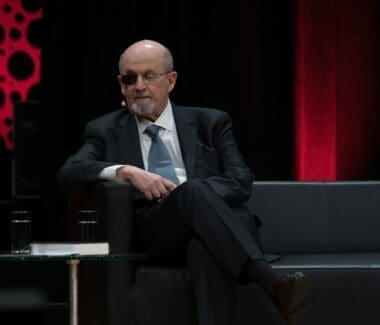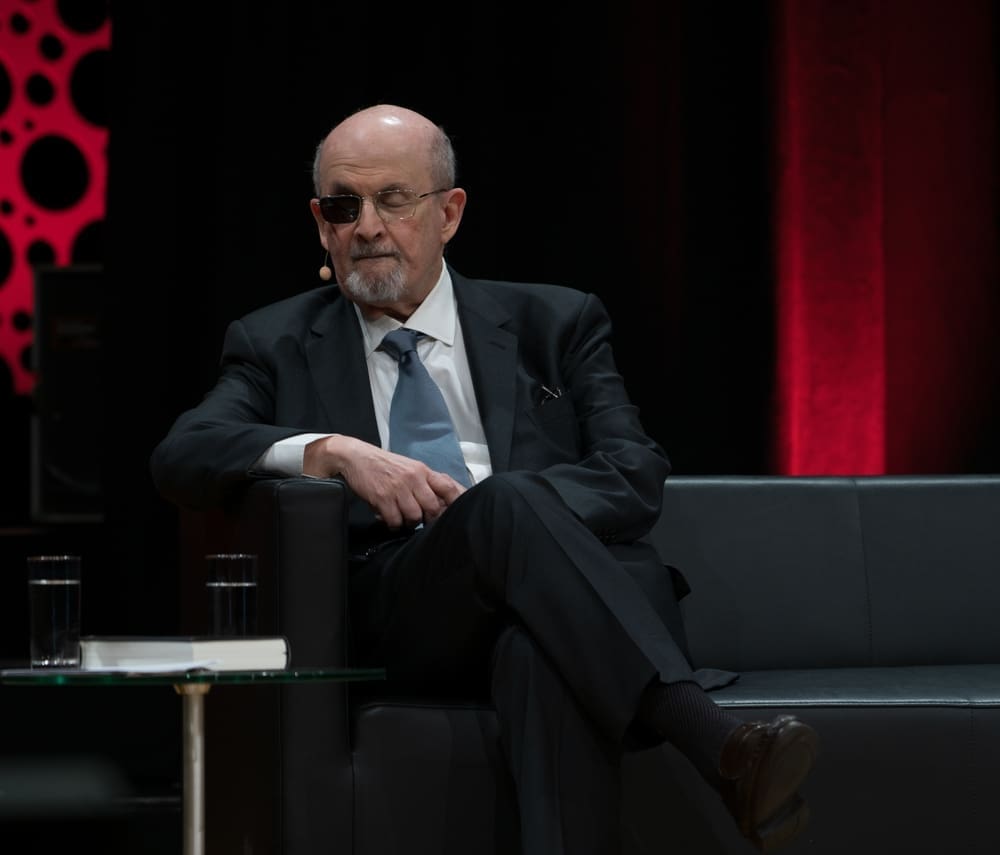Hadi Matar, aged 27, was pronounced guilty by the Chautauqua County court after the jury deliberated for less than two hours. The attack occurred on August 12, 2022, at the Chautauqua Institution in New York, where Matar rushed the stage and inflicted multiple stab wounds on Salman Rushdie in front of an audience. The brutal attack left the 77-year-old author blind in one eye.
Salman Rushdie, the central figure during the testimony, recounted in detail the severe injuries he sustained and the arduous recovery that followed. He described the horrifying moment when an assailant stormed the stage, masked, and delivered over a dozen stabs and slashes. Rushdie’s testimony was a testament to the severity of the attack and its impact on his life.
The trial featured pivotal moments, including the district attorney playing slow-motion footage of the attack to highlight the deliberate nature of Matar’s actions. “I want you to look at the unprovoked nature of this attack,” stated District Attorney Jason Schmidt, underscoring the singular focus on Rushdie amidst a large crowd.
Hadi Matar’s defense argued that the prosecution failed to establish his intent to kill, which is crucial for an attempted murder conviction. Defense lawyer Andrew Brautigan emphasized, “You don’t know what Mr. Matar’s conscious objective was.” However, the argument was insufficient to sway the jury, which found intent in the repeated attacks on Rushdie’s vital areas.
Following Rushdie’s testimony, a trauma surgeon detailed how prompt medical intervention was critical in saving Rushdie’s life. The video evidence further illustrated the sequence of the attack, showing Rushdie trying to defend himself despite being severely wounded. Matar was seen on video engaging in the attack until bystanders intervened and subdued him.
The jury also heard from witnesses present at the Chautauqua Institution that day, who identified Matar as the assailant. The attack did not only target Rushdie; co-speaker Henry Reese suffered injuries, which added an assault charge against Matar. Public defender Nathaniel Barone suggested that the high-profile nature of Rushdie contributed to the severity of the charges.
Compounding the state’s charges, a federal indictment suggests that Matar was influenced by a 2006 speech from Hezbollah leadership supporting a fatwa against Rushdie. This indictment opens another aspect of this complex case, with a trial for terrorism-related charges pending.
Rushdie, who has spent years under the shadow of a fatwa issued by the late Iranian leader Ayatollah Khomeini, had recently resumed public appearances, believing the threat had diminished. The violent episode at the Chautauqua Institution underscored the persisting dangers he faces.
The conviction of Hadi Matar marks a significant development in the case surrounding the attack on Salman Rushdie. With the jury’s decision and the potential for an additional federal trial, the incident highlights ongoing threats against the author stemming from a decades-old controversy. As Rushdie continues his recovery, the legal ramifications for Matar are yet to be fully realized.











